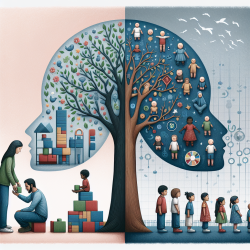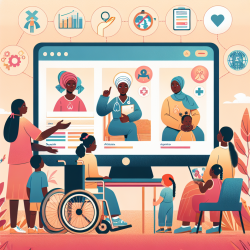Introduction
As practitioners in the field of speech-language pathology, understanding the multifaceted influences on child development is crucial. The study titled Understanding the impact of gendered roles on the experiences of infertility amongst men and women in Punjab provides insights that can be extrapolated to our work with children, particularly in understanding the social and emotional contexts that influence development. This blog explores how these insights can inform our practices and encourage further research.
Understanding Gendered Experiences
The study highlights the profound impact of gender roles on the experiences of infertility in Punjab, Pakistan. It reveals how societal norms and expectations shape the experiences of men and women differently, with women often bearing the brunt of social and emotional consequences. This gendered perspective is essential in speech-language pathology as it underscores the importance of considering familial and cultural contexts when assessing and treating children.
Implications for Speech-Language Pathology
Understanding the social construction of roles and expectations can help practitioners in several ways:
- Contextual Assessment: Recognizing the cultural and familial expectations placed on children can inform more nuanced assessments. This understanding can lead to more personalized and effective intervention strategies.
- Parental Engagement: Engaging parents in the therapeutic process by acknowledging their cultural context can enhance cooperation and outcomes. Practitioners can facilitate discussions that respect cultural norms while promoting positive communication practices.
- Addressing Stigmatization: The study highlights the stigma associated with infertility. Similarly, children with speech and language disorders may face stigmatization. Understanding these dynamics can help practitioners develop strategies to support children and families in overcoming societal barriers.
Encouraging Further Research
The insights from this study suggest the need for further research into how gender roles and cultural expectations influence child development and family dynamics. By exploring these areas, practitioners can develop more effective, culturally sensitive interventions that support children’s communication skills and overall well-being.
Conclusion
Incorporating insights from gender studies into speech-language pathology can enhance our understanding of the diverse factors influencing child development. Practitioners are encouraged to consider these insights in their practice and to contribute to ongoing research in this area.
To read the original research paper, please follow this link: Understanding the impact of gendered roles on the experiences of infertility amongst men and women in Punjab.










